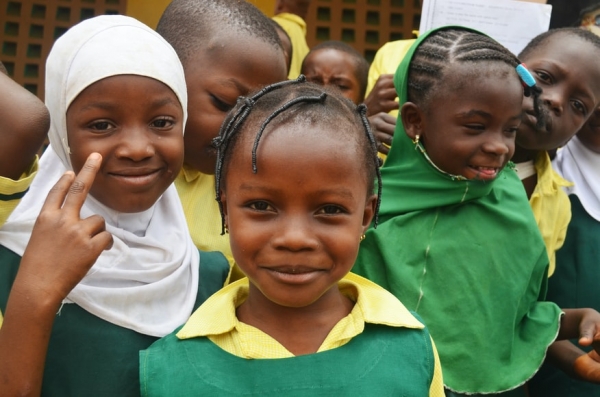Borno State remains at the epicentre of a crisis that has been going on for well over a decade, in which children are frequently both the direct and indirect targets of jihadist fighters. According to the 2019 report “Psychosocial Support for Children: A Rapid Needs Assessment in North-East Nigeria” by the United Nations Children's Fund (UNICEF), the conflict, starting in 2009, has led to a humanitarian crisis affecting over 7.7 million people.
In the north-east of Nigeria, about 300,000 children have been killed. Many have experienced displacement, family separation, sexual violence, abduction and forced conscription by non-state armed groups. Poor brain development, depression and low self-esteem are just some of the consequences of protracted exposure to violence. The post-traumatic stress rate is worrisome: children living in conflict-affected areas manifest elevated levels of anxiety, suspiciousness, anger, and aggressiveness, as well as sleep-related difficulties, isolation, and hyper-vigilance. As a result, these children can often grow up into poorly adjusted, deeply troubled adults, creating intergenerational forms of suffering and abuse.
The Support to Early Recovery and Resilience Project, implemented by UNICEF with funding from the European Union Trust Fund (EUTF), is providing psychosocial services to at least 5,129 out-of-school children in Borno State, in six local government areas. The EU-funded programme, which is part of a three-year €10 million assistance package, aims to provide aid to communities, youths, and children, helping them better deal with crises, manage their emotions, solve problems, maintain healthy relationships, and improve their resilience, literacy skills and self-reliance.
According to the Minister of State for Education, Mr. Chukwuemeka Nwajuba, there are about 13.2 million out-of-school children in Nigeria. Access to education is limited by attacks and large-scale kidnapping in schools, which prevent children from acquiring knowledge and skills, and make them more vulnerable to conflict-related instability. In this context, the support provided by EU and UNICEF constitutes an essential milestone in protecting children’s rights. However, while equipping these children with the skills to become more resilient is an admirable initiative, the true role of international institutions such as the EU and the UN, should be to tackle the systemic forms of violence and conflict that make this resilience a necessity.
Sources:
https://reliefweb.int/report/nigeria/eu-unicef-address-mental-health-5129-out-school-children-borno
https://reliefweb.int/report/nigeria/web-conflicts
https://www.unicef.org/nigeria/emergencies
Author: Antonella Candiago; Editor: Xavier Atkins







